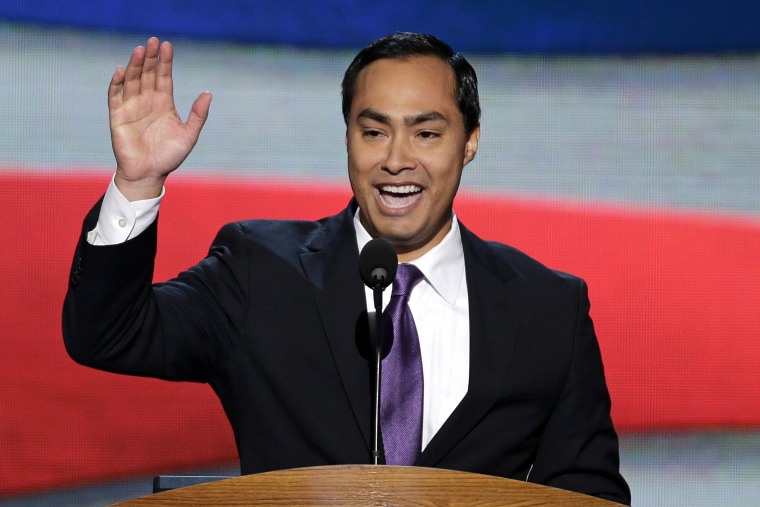WASHINGTON, DC -- As Rep. Joaquín Castro sees it, exercising the full political power of the Latino population starts with raising that awkward conversation with family and friends: Will you go vote?
Helping to open the Congressional Hispanic Caucus Institute policy forum, Castro, D-Texas, urged attendees at the 4-day event - many of them young people – to use the statements against Mexicans and immigrants made by GOP front runner Donald Trump (whom Castro never named) as reason to reach out to people in their lives and to lean on them to go vote.
Sure, it’s a bit like calling your friend on a Saturday night and asking them to help you move. But when you they do it anyway “because you asked them to,” Castro said.
“Voting is a very personal thing in the Latino community and we have the power to ask the people around us to go vote because it means a lot to us and because it’s going to make a difference in our lives and their lives,” Castro said.
Rep. Linda Sanchez, Congressional Hispanic Caucus chairwoman, was more forceful.
"From Congress to the candidates for the presidency, we hear that hateful rhetoric, the shameful rhetoric. They are using hardworking Latinos as scapegoats for their political agenda, and you know what? They are counting on us to remain silent. To do nothing. To stay home on Election Day. To not register to vote," said Sanchez, D-Calif. "They could not be more mistaken; I am on a personal vendetta to get every Latino that I know that is eligible to vote to register and to participate."
Gabriel Sanchez, director of research for Latino Decisions polling firm, said some 13.1 million Latinos are projected to vote in 2016. The number of Latinos eligible to vote is expected to double in 20 years.
The missed potential in the Latino community is more vivid when the more 12 million Latinos who could vote in 2014 but were not registered is examined at the state level.
In California, 3.5 million Latinos are eligible to vote but are not registered, in addition to the 3.3 million already registered, according to Latino Decisions research Sanchez presented.
In Texas, 2.6 million are eligible in addition to the 2.6 million already registered.
In Colorado, a key battleground state driven by Latino growth, 213,000 are eligible to vote and not registered; 321,000 are registered.
In Arizona, where a lot of local immigration and other policy is enacted, 458, 000 are eligible and unregistered, while 687,00 are registered.
“Longstanding political science literature has suggested that once people become registered to vote, their likelihood of actually voting increases exponentially,” Sanchez said.
Using the family and friends networks is something Castro has experimented with. Before 2012, he ran what he called the “Victoria Project,” in which he got people to name the people in their lives who were not voting and get them to systematically get those people to vote.
“It was a very small thing but I ran it really as a small experiment to gauge the leverage people have to really go get other people in their lives to participate and it was great,” Castro said.
“It was promising. People were able to get the folks around them to actually go out and vote,” he said.
He said he’d like to see it done on a larger scale throughout the country, but his involvement is restricted by congressional ethics rules. The limits frustrate Castro, who said he sometimes thought he could have more effect on turning out the vote outside of Congress, though he emphasized he’s not going anywhere.
“That is hard work because it’s person by person. We’ve had this challenge for decades now of underperforming in terms of voting,” Castro. “There’s no more easy solutions, to this is going to take detailed, hard work.”

